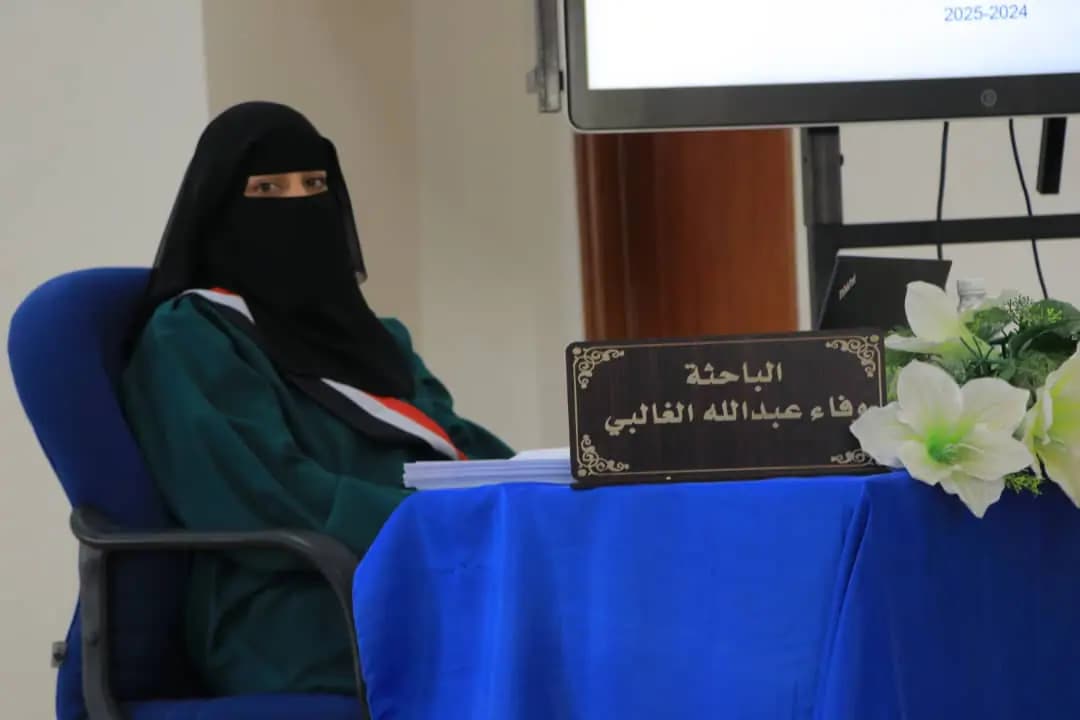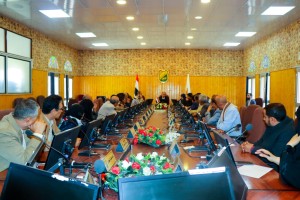Master’s Degree Awarded to Ms. Wafaa Mohammed
- Categories Letters and Promotions - Graduate Studies, news
- Date May 3, 2025

Ms. Wafaa Abdullah Mohammed Al-Ghalibi was awarded a Master’s degree with an average of (Excellent) and a grade of 98%, in the major of information system, for her thesis titled “An Analytical Model for Business Intelligence in Monitoring and Evaluating Performance for Healthcare Facility Management.”, which was submitted to Department of Information Systems, Faculty of Computer Sciences – Sana’a University. The defense was held on Wednesday, 27 Sha’ban 1446 Hijri, corresponding to February 26, 2025.
The MA Viva-voce Committee, which was formed based on a resolution issued by the Post-Graduate Studies and Scientific Research Council, consisted of the following members:
- Fadhl Mutahar Ba’alawi (Supervisor),
- Khalil Saeed Mohammed Al-Wajeeh (External examiner and Chairman), and
- Ibrahim Mohammed Mohammed Al-Haddad (Internal examiner).
The thesis aimed to bridge the performance management gap in facility management within the Yemeni healthcare sector by prioritizing key performance indicators (KPIs) for facility management in Yemeni hospitals. This study employs the Analytic Hierarchy Process (AHP) and the Balanced Scorecard (BSC) to develop a structural model for evaluating and improving the performance of facility management in Yemeni healthcare institutions.
The thesis methodology relies on a mix of quantitative and qualitative research approaches. The qualitative method reviews previous academic research to extract the most critical metrics that were frequently repeated in prior studies. In the initial phase, 35 KPIs were identified across four perspectives according to the Balanced Scorecard. Using these indicators, a questionnaire was developed and distributed to practitioners in the hospital construction sector in Sana’a City. After data collection, it was analyzed using the Analytic Hierarchy Process (AHP).
The thesis reached several key findings, including:
- The financial dimension holds the highest weight, followed by the customer perspective, then the internal perspective, and finally the learning and growth perspective.
- Regarding the sub-criteria analysis results, it was found that cash flow, patient satisfaction, debt-to-total assets ratio, patient safety, net profit, length of stay, total asset turnover, number of patient complaints, average profit per hospital bed, and clinical errors are the most important KPIs for facility management.
In her thesis, the researcher concluded with a number of recommendations, including:
- Adopting the identified KPIs, especially cash flow, patient satisfaction, and patient safety, to evaluate healthcare performance in Yemen.
- Priority should be given to financial sustainability, followed by improving patient-centered services and enhancing internal operations.
- Although learning and growth ranked lowest, investing in employee development and technology remains crucial for long-term resilience.
- A unified national system for performance monitoring should be established, and ABI tools should be integrated for real-time monitoring.
The thesis was examined and recommended by the Viva-Voce Committee for acceptance and approval. The defense was attended by a number of academics, researchers, students, and interested individuals, in addition to the candidate’s colleagues and family members.
Discover more from Sana'a University
Subscribe to get the latest posts sent to your email.
Previous post






